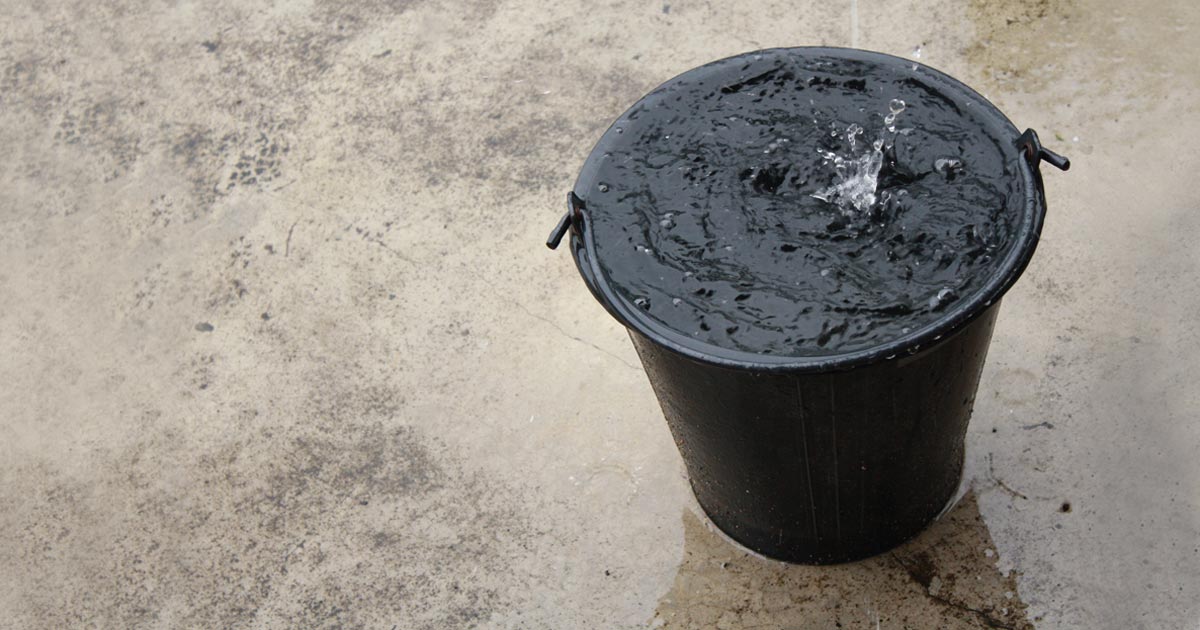More than any other group of people I know, vets are good at beating themselves up after mistakes – world class, in fact.
We make mistakes because we’re human. But, because we’re also medical professionals, sometimes the mistakes we make lead to a death, and that’s a very hard thing to deal with – particularly for someone who has dedicated his or her life to helping others.
Our mistakes are also taboo, although I think this is self-inflicted – partially because we daren’t talk about them (because we’re afraid of being disciplined for them) and partially because talking about them reminds us of that terrible dark feeling… the one I’m going to talk about now. We find it hard to accept them and, often, we’ve never forgiven ourselves for them.
A long time ago in a vet practice far, far away….
I was a relatively new graduate, and circumstances had conspired so I was working evening surgery on my own.
It was a busy evening surgery; beyond busy, in fact – its sheer mass seemed to slow down time itself, so I could no longer imagine ever having any other existence than seeing one sick animal after another, constantly returning to an ever-growing waiting room to call the next name from the increasingly mutinous crowds beyond.
The appointments had been fully booked three days previously, and had only grown fuller since.
By 6:05pm, I was already 25 minutes behind. The waiting room was reaching capacity, and I was ready to get down on my knees and beg for something as simple as a vaccination.
Exit the dragon
Earlier on in this miserable evening, I’d been presented with a Chinese water dragon. Reptile medicine not being my forte, it took me at least five minutes to figure out that the cause of its “lethargy” was that it had been dead for several hours – and this had been one of my easy consultations.

Three clients had stepped into the surgery without appointments, needing to be seen that night regardless. They told the receptionist they were happy to wait, but the expressions that greeted me every time I called in someone else suggested otherwise.
As I glanced at my computer screen, cleaning my table ready for the next onslaught and wondering if it was possible for a person’s head to actually crack under pressure, the head nurse popped her head through the door with an apologetic expression on her face.
No place like home
“Um… I’ve got Mrs Fitzroy on the phone,” she said.
Mrs Fitzroy was a breeder of cavalier King Charles spaniels – one who brought an awful lot of business to the practice – and she was, if only in her own mind, a VERY IMPORTANT CLIENT.
“Aaand?” I asked, miserably.
“She wants a home visit. There’s a problem with one of her puppies.”
I looked at the waiting list, and wanted to scream. Six people were waiting already, so I said, if she could bring the puppy into the practice, I would see it right away. The head nurse nodded. We both knew the likely response from the demanding Mrs Fitzroy, but it was worth a try.
No time to spare
I called another consultation through (a mercifully simple bilateral otitis in a cocker spaniel), but as I was out in the pharmacy putting a label on the ear ointment, the head nurse approached again, saying: “She says she can’t leave the mum; she’s whelping. She can’t leave her alone. She wants a visit, right now.”
I wanted to cry. I didn’t have enough time to go to the toilet, let alone a home visit.
She wouldn’t tell the receptionists or the nurses what was wrong with the puppy. If I was older or (debatably) wiser, I might have recommended Mrs Fitzroy bring the whole gang to the practice: mum and puppies. It does the mum no harm; in some cases, it even helps with the whelping – but I didn’t have that experience. I might have talked to her directly and explained my problem, and found out what was wrong. It might have diffused things.
This was my first mistake of the evening.
Third time lucky
I called through another consult: a West Highland white terrier with allergic skin disease. The owner didn’t understand why the skin allergy hadn’t been cured with the previous treatment, and wanted a long chat about where to go next. Another deep breath.
Halfway through this chat, there was a knock on the door. The head nurse peered in. She looked about as miserable as I felt.
“I’ve got Mrs Fitzroy on the phone again. She insists on speaking to a vet.”
I apologised to my client, who was already fuming after the long wait, and scurried out to the prep room, picking up the phone. I’d only spoken to Mrs Fitzroy once before – she normally only spoke to the practice principal.
The conversation
“Who is this?” she demanded as soon as I started to speak.

“It’s Nick,” I said. “The… uh… duty vet for tonight.”
“I need a home visit immediately.“
“I’m afraid that’s not possible right at the moment,” I said, as politely as I could. “If there’s any way you could make it to the practice, I’d be very happy to see you straight away.”
“No,” Mrs Fitzroy said, slowly. “There is no way.” I was obviously not the first junior vet she had dealt with. “One of my puppies is in severe difficulty and needs to be put to sleep.”
“Exactly what is the difficulty, Mrs Fitzroy?”
“His guts are out. All over the place. There’s a hole in his belly. I simply can’t leave the mother,” Mrs Fitzroy said. “But I can’t leave him like this. Is there anything that can be done?”
I pictured the puppy, gasping, on its side, bowel loops exposed.
“Er…” I said. I was trying to think: was this treatable? Could it survive? My university lectures seemed a very long time ago.
“They can’t survive this, can they?” Mrs Fitzroy said. “I’ve had several, they’ve never made it. It needs putting to sleep.”
Mrs Fitzroy evidently knew more than I did in this case.
“No,” I agreed, reassuringly, despite not being at all sure. “They can’t survive. If you get someone to bring him in, we’ll put…”
“No need,” said Mrs Fitzroy. “I’ll take care of it.“
Pleading ignorance
I didn’t know what she meant. Except…
Except that was a lie I told myself; I knew exactly what she meant. I wanted to beg her to find someone – anyone – to bring the puppy in; to let me see it; to just give me some time to think!
Instead, I hesitated. The phone was silent. I stayed quiet.
“Thank you for your help,” Mrs Fitzroy said, almost politely. The phone went dead.
I stared at it for a moment, a cold feeling in my stomach. Then I returned to my consulting room to talk about skin disease.
Normal service resumed
Thirty minutes later, things weren’t looking so bad. The coldness in my stomach remained, but the waiting room was clearing; only one person was left to see. My hand was on the door to the waiting room when the head nurse came in again. She told me the boss was on the telephone and wanted to speak to me – immediately…
On the telephone, my boss – his voice cool with anger – explained he’d been out of mobile phone range and had a missed telephone call from Mrs Fitzroy – presumably she’d tried to contact him in between telephone calls to the practice. Finally telephoning her back, he learned the fate of the puppy.
He quietly explained to me that the condition was not necessarily fatal. Prompt surgical replacement of the intestines can be successful. The pups don’t always survive (shock and general anaesthetics take a heavy toll on a newborn), but it is treatable.
Deep water
“Do you know what she did to the puppy?” he asked. I didn’t want to know, but he told me anyway: “She drowned it.”
 I can hear those words now, 20 years later, as clearly as I heard them the first time.
I can hear those words now, 20 years later, as clearly as I heard them the first time.
Mrs Fitzroy had filled a bucket with cold water and held the puppy under the surface. I imagined the scene, although I didn’t want to. I imagined those tiny legs kicking, bubbles bursting from its newborn lips. I’ve seen that image many times since, late on sleepless nights.
If I had possessed a simple piece of knowledge about the condition, I might have saved that puppy’s life. If I’d been less passive and meek on the telephone, I might have saved its life. If I hadn’t allowed myself to panic, I might have saved its life.
None of it mattered now, because the puppy was dead.
With the benefit of hindsight
That’s a difficult night for me to talk about, even all these years later. Objectively, I can see it wasn’t all my fault – my then boss, after his anger cooled, told me as much himself – but objectivity doesn’t have a lot to do with the dreadful dark feeling I have, even now, when I think back to that night.
Even now, after all these years, I can’t forgive myself for what happened. I’ve made worse (far worse) mistakes since then, but this was my first – my introduction to how it feels to cause death through inexperience, inattention or ignorance.
As I said, vets are better than anyone I know at beating themselves up. They’re also worse than anyone I know at forgiving themselves their failures.
We have one of the highest suicide rates of any profession. We need to talk about this, and we need to keep talking until it gets better.

Leave a Reply